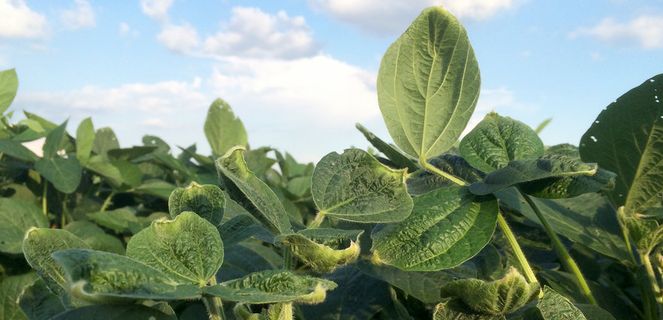Arkansas Plant Board passes emergency rule for the use of dicamba
by March 25, 2019 7:16 pm 2,300 views

The Arkansas Agriculture Department’s State Plant Board approved a proposed emergency rule Monday (March 25) to clarify that the only three dicamba products allowed for burndown applications from April 16 through May 25 are Engenia, Fexapan, and Xtendimax.
Burndown applications addressed by the proposed emergency rule are subject to buffer zones established in the dicamba rule that went into effect on March 11. The additional restriction was added to prevent use of dicamba products labeled for aerial applications without buffer zones. A copy of the dicamba rule that went into effect on March 11 can be found here.
The proposed rule now goes to Gov. Asa Hutchinson for review. If approved, it will go to the Joint Budget Committee’s Administrative Rule and Regulation Review Subcommittee and then the full Joint Budget Committee for review and approval.
The board also clarified the definition of specialty crops, buffer zones for non-tolerant crops, and organic operations. These clarifications and answers to other frequently asked questions will be published on the Arkansas Agriculture Department’s website.
New regulations for the use of dicamba were approved earlier this month. The regulatory changes include restrictions on in-crop applications of dicamba from May 26 to Oct. 31. A half-mile buffer zone would be required around all non-dicamba crops when dicamba is applied.
ASPB made the decision to ban dicamba after it received about 1,000 damage complaints in May 2017, primarily in northeast Arkansas, potentially caused from dicamba drift. The decision was controversial, but the board decided the risks were too significant. Dicamba is a weed control herbicide, but it has been suspected of causing damage to other crops. ASPB, which investigates and reviews complaints, enacted higher fines on improper dicamba applications meant to serve as a significant deterrent to potential violators.
Dicamba has been banned in several states. Dicamba has been used as a herbicide for more than 50 years to manage 200 broad leaf weeds. It is a Weed Science Society of America Group 4 synthetic auxin — a plant hormone that causes plants to exhibit uncontrolled growth, according to the University of Arkansas. It is more volatile in warmer climates.
Scientists theorized dicamba was drifting into adjacent crop fields, gardens and other places. Misapplications, weather conditions, or some other unknown factors may have caused the alleged drift. Tests proved the new formulations were less volatile than older ones, but there was still volatility, and it could last up to 36 hours after it was sprayed. Dicamba can attach to dust particles, meaning it can travel much further from target sites than previously thought.
